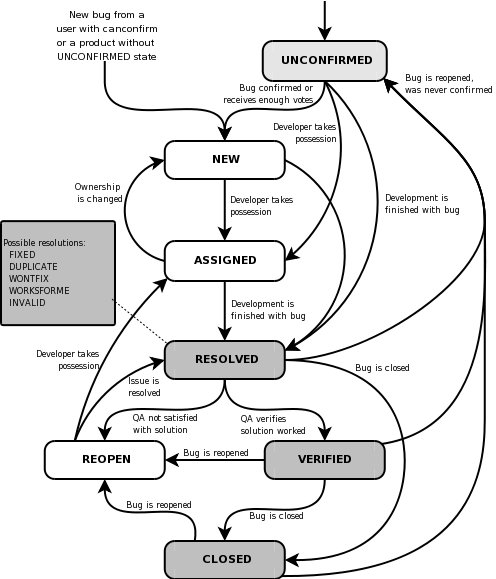Essential Ticket Skills - just because Jira sucks doesn't mean you have to!

And don't you fucking start with Trello or sticky notes and "swimlanes". Those can fuck right off here.)
infiniteundo.com/post/366780964…
Required:
- Description Of Problem
- Steps To Reproduce
- Expected Results
- Actual Results
Recommended:
- Screenshots / exact copy of terminal I/O (script(1))
Optional:
- Suggested Remediation
- Code Patch
hwrnmnbsol.livejournal.com/148664.html
(Shush you, I heard you mumble 'blockchain’. You should be ashamed of yourself.)
Anything more than that should be appended via a new comment.
98% of the time you do not want a "clone".
(Adding a comment *why* the tickets are linked can be helpful, though.)
Ensure your repository automatically updates tickets based on commit message mentions.
If it doesn't, manually add a link to the commit or pull request together with the commit message.
robots.thoughtbot.com/5-useful-tips-…
tbaggery.com/2008/04/19/a-n…
slideshare.net/TarinGamberini…
Different teams have different processes for triaging incoming tickets. Some use ‘unassigned’ as a triage trigger, others use a mailing list, etc. Don’t break their process.
(Corollary: have a triaging strategy for your intake.)
Example image from Bugzilla:

Let others find your tickets. Let them comment. Don't restrict visibility or access!




